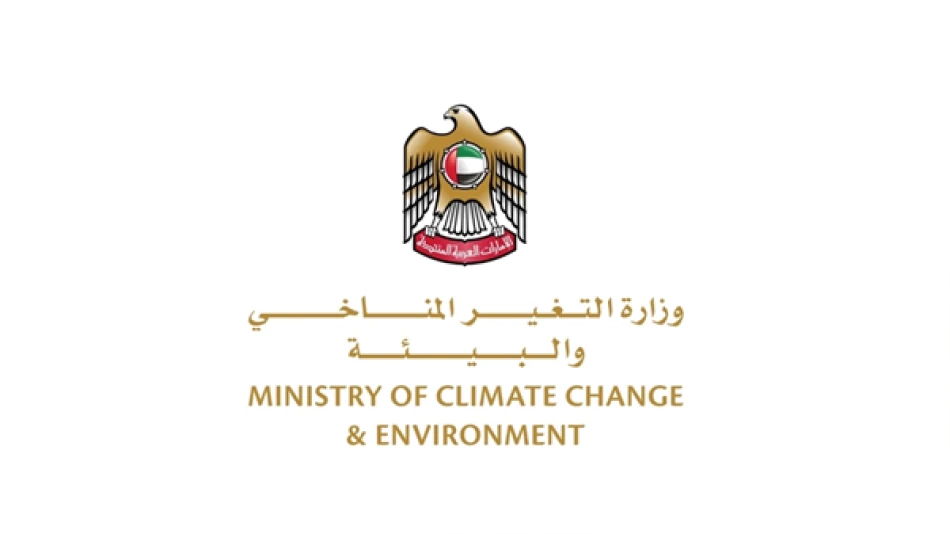
Groundbreaking Platform 'Tahweel' Empowers Recycling Trade Amidst Climate Change
UAE Launches National Digital Marketplace to Transform Waste Into Economic Gold
The United Arab Emirates has officially launched "Tahweel," the nation's first comprehensive digital marketplace for trading recyclable materials, marking a strategic pivot from traditional waste management to a lucrative circular economy model. This government-backed platform aims to eliminate bureaucratic barriers while creating new revenue streams from what was once considered mere waste, positioning the UAE as a global leader in sustainable economic transformation.
A Strategic Economic Shift Beyond Environmental Goals
The Ministry of Climate Change and Environment unveiled Tahweel in partnership with Bee'ah, framing it as one of the federal government's transformational projects for 2024-2025. This initiative directly supports the UAE's "We the UAE 2031" vision, which targets establishing the country as the global center for the new economy within the next decade.
Unlike traditional recycling programs that focus primarily on environmental benefits, Tahweel represents a fundamental economic restructuring. The platform transforms waste management from a cost center into a profit-generating sector, creating measurable value from resources that would otherwise end up in landfills.
Digital Innovation Meets Circular Economy Principles
Platform Architecture and Trading Mechanisms
Tahweel operates as a comprehensive digital marketplace supporting multiple material categories including metals, plastics, paper, wood, electronic waste, glass, and rubber. The platform offers sophisticated trading options such as timed auctions, partial bidding, instant sales, and immediate purchases, ensuring fair pricing and equal opportunities for all participants.
The system directly connects institutions and companies, eliminating intermediaries and enhancing transaction efficiency. Users must possess valid commercial licenses to participate in trading activities, ensuring regulatory compliance and market integrity.
Bureaucracy Elimination Through Technology
The platform exemplifies the government's "Zero Bureaucracy" initiative by removing traditional barriers in waste management operations. Instead of complex conventional procedures, Tahweel provides a transparent digital channel that reduces time and effort while boosting commercial operational efficiency.
Regional Leadership in Sustainable Markets
This launch positions the UAE alongside other forward-thinking economies developing circular economy infrastructure. While Singapore has focused on urban waste-to-energy solutions and the European Union has implemented extended producer responsibility frameworks, the UAE's approach uniquely combines digital marketplace efficiency with comprehensive government backing.
The timing is particularly strategic as global supply chains increasingly demand sustainable sourcing options. Companies operating in the UAE now have access to a regulated, transparent marketplace for recycled materials, potentially reducing dependence on virgin resource imports.
Market Implications and Investment Potential
For investors and businesses, Tahweel represents several compelling opportunities. Small and medium enterprises can now access previously fragmented recycling markets through a single digital platform. Large corporations benefit from streamlined procurement of recycled materials, supporting their sustainability commitments while potentially reducing costs.
The platform's integration with Bee'ah's existing Re.Live technology, which has already achieved rapid national growth and international expansion, suggests strong technical foundations and proven market demand. This established infrastructure reduces implementation risks typically associated with new digital marketplaces.
Government-Private Partnership Model
The collaboration between the Ministry of Climate Change and Environment and Bee'ah demonstrates effective public-private partnership structuring. The government provides regulatory framework and policy support, while the private sector contributes technological expertise and operational efficiency.
Dr. Amna bint Abdullah Al Dahak, Minister of Climate Change and Environment, emphasized that this partnership exemplifies the integrated national cooperation needed for sustainable transformation across all sectors. The model could serve as a template for similar initiatives in other economic sectors.
Long-term Economic and Environmental Impact
Tahweel's success could significantly impact the UAE's waste diversion rates and landfill dependence while creating new employment opportunities in the circular economy sector. The platform's data collection capabilities will also provide valuable insights for policy development and market optimization.
As global pressure intensifies for sustainable business practices, the UAE's early investment in digital circular economy infrastructure positions the nation advantageously for future international partnerships and trade relationships. The platform's scalability suggests potential for regional expansion, further enhancing the UAE's role as a Middle Eastern sustainability hub.
Most Viewed News

 Layla Al Mansoori
Layla Al Mansoori






